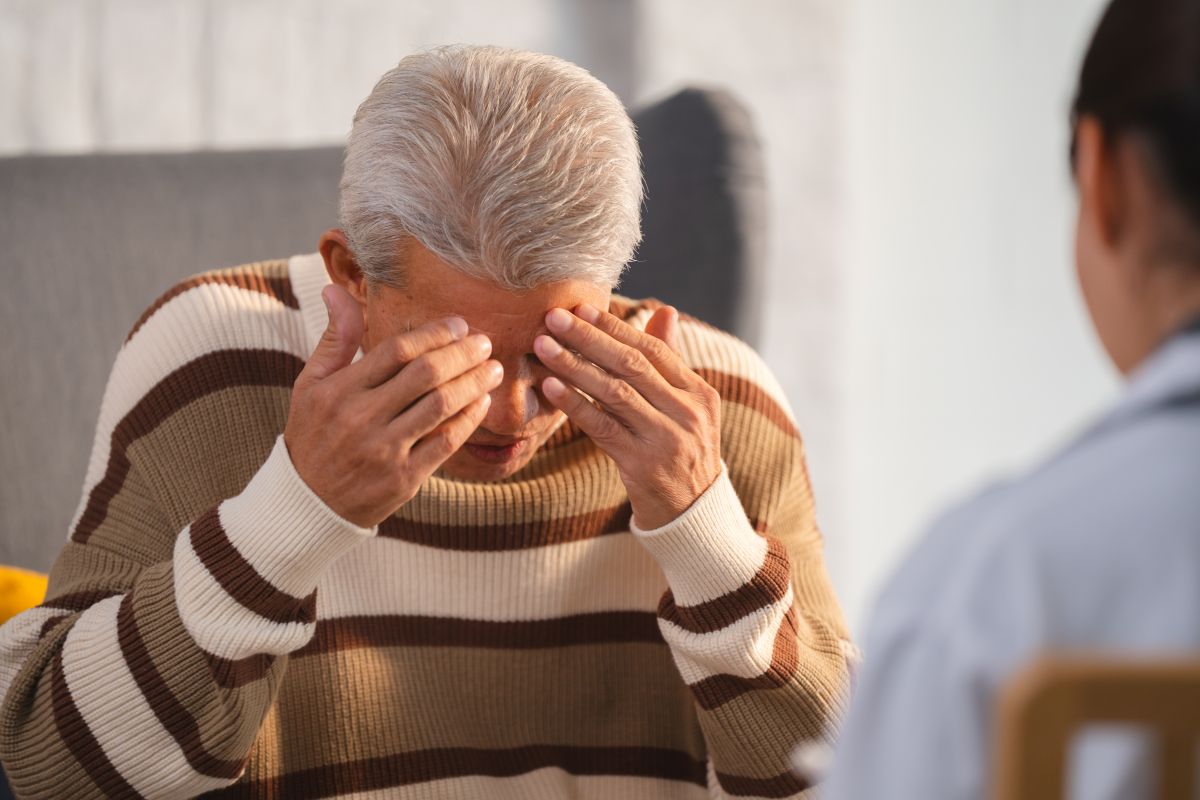“Do you know what it is to be sad and old?” Maria* an aged care resident asked me.
“No, of course not! You’re just a baby,” the 87-year-old exclaimed, in answer to her own question.
A brief spark of mischief lit up her rich hazel eyes as she levelled them at me, before vanishing as she whispered, “Bernie* did…”
It turns out, Bernie and Marie had been friends since school drop-off days, “A very long time,” she assured me.
Bernie had always been active and engaged in life but had recently developed heart disease and suffered from terrible chronic pain in his leg.
When his family moved him to the same aged care facility as his friend Maria, they thought his outlook would improve.
Sadly, this was not the case. Even as Maria reached out, Bernie retracted inward.
“He just had nothing left to give…,” she said sadly. “It wasn’t long before he was gone.”
Seniors mental health issues: A hidden epidemic
According to the Australian Institute of Health and Welfare, 7.9% of men and 11.1% of women over the age of 65 have experienced a mental health condition (excluding dementia) in the past year.
Worryingly, men older than 85 are at significant risk of suicide, with the highest age-specific rate of any group recorded.
All is not well for many Australian seniors, but what is the cause?
Risk factors for mental health in seniors
Many of the circumstances that put seniors at risk of mental health issues can also have the same effect on younger people.
So, what is the problem?
Well, simply put – volume. Seniors are far more likely to experience multiple risk factors at once than other groups.
Some of the risk factors:
- Big life changes, such as moving house
- Loss and grief, whether for a partner, friends, family or their own identity
- Chronic health conditions, including chronic pain
- Medication side effects
- Loss of or decrease in mobility
- Loss of independence
- Social isolation
- Financial stress
In addition, other stressors and challenges can also contribute to the development of depression or anxiety, including physical health issues. Seeing a GP is an important first step to getting help.
Individual coping strategies
While depression, anxiety and other mental health issues can feel overwhelming, there are strategies that may help.
- Exercise: Regular physical activity can help reduce symptoms of depression and anxiety, while also supporting overall well-being. Moving your body releases feel-good hormones and helps regulate stress.
While finding the right exercise can be more challenging in older age, there are many low-impact options such as swimming and chair tai chi.
- Mindfulness and journaling: Take time to be calm and present, reflecting on your thoughts.
- Hobbies: Find something you enjoy and explore it! After a lifetime of busyness, you finally have time to delve into passion projects.
- Volunteer: Find a cause you care about and reach out.
- Build a support network: Reaching out to a psychologist for anxiety can be the first step to feeling better.
Helping someone you care about
When someone you love seems down or particularly anxious, it can be hard to know what to do, but start here.
- Communicate: Aim for regular, open, supportive and respectful.
- Social interaction: Make time to visit and spend quality time together regularly.
- Help with tasks: Find out if anything is becoming challenging and lend a hand.
- Encourage seeking help: Reaching out to a psychologist for depression can support their recovery or help them access appropriate treatment and support.
- Know the warning signs: Learn what to look out for if your loved one’s mental health deteriorates. Encourage them to develop a plan with their psychologist in case this happens.
By taking some of the steps above, you can help break down the stigma of senior mental health issues and help support quality of life and wellbeing.
*Maria and Bernie are composite examples created to reflect common experiences of older adults. This story is for general information only and does not represent any real patient or guarantee any treatment outcome. This article is not intended to replace professional medical advice, diagnosis, or treatment.
If you or someone you know is struggling with mental health issues, help is available. Please seek advice from a qualified health professional.
If you are in crisis or feel unsafe, call 000.
For 24/7 support:
Lifeline: 13 11 14
Suicide Call Back Service: 1300 659 467
Other support:
Beyond Blue: 1300 22 4636 or via online chat
MensLine Australia: 1300 78 99 78 or via online chat
FriendLine: 1800 424 287 or via online chat
Open Arms (veterans and their families): 1800 011 046




